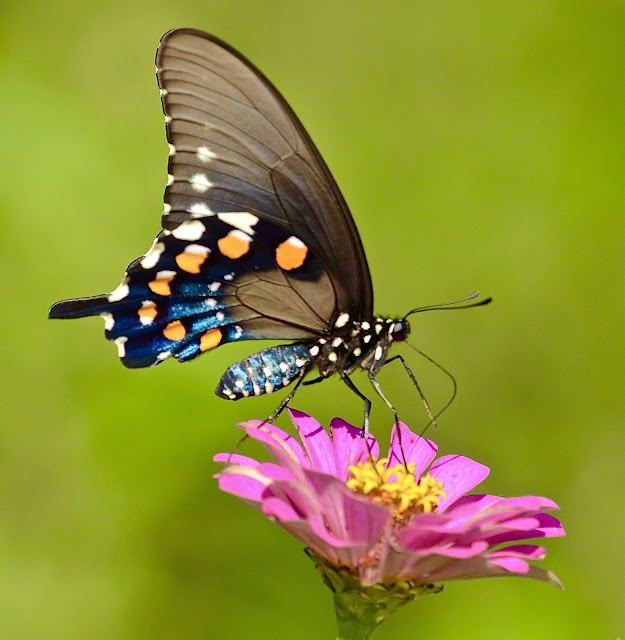Off on my morning walk
on the trails through the South Carolina
Botanical Gardens, accompanied by my camera.
I keep thinking that the butterflies should have disappeared by now,
but it seems that only the swallowtails that are diminishing in number each
week. The monarchs and fritillaries are still in abundance, and I'm still finding
many in the caterpillar stage. So wonderful, this seasonal unfolding of beauty—of new life.
Shortly after making the image
of the Monarch in the header photo,
I came across this Great Spangled Fritillary
enjoying breakfast on top of a zennia. It was the tip of his
wing catching the early morning sunlight that caught my eye.
Down the trail a bit,
I came across some of the last
cherry tomatoes growing in a small garden.
This is a Gulf Fritillary,
also munching on one of the
many zinnias (which are great for
attracting butterflies). Whenever possible,
I try to photograph butterflies against a dark
background in order to highlight their colors and designs.
Another Monarch.
The wing designs and
color placements are amazing.
Notice how the white dots on the
edges of the wings are matched with white dots on the head and neck.
This image is not
as crisp as I would like,
but you can see that I discover
other types of weird creatures on my walks.
This is the back side
of a Gulf Fritillary feasting on a zennia.
Another Monarch
A Few Parting Words
from
The Tao Te Ching
(translation by Ursula K. Le Guin)
The Way bears them;
power nurtures them;
their own being shapes them;
their own energy completes them.
And not one of the ten thousand things
fails to hold the Way sacred
or to obey its power.
Their reverence for the Way
and obedience to its power
are unforced and always natural.
For the Way gives them life;
its power nourishes them,
mothers and feeds them,
completes and matures them,
looks after them, protects them.
To have without possessing,
do without claiming,
lead without controlling:
this is mysterious power.
LaoTzu





























